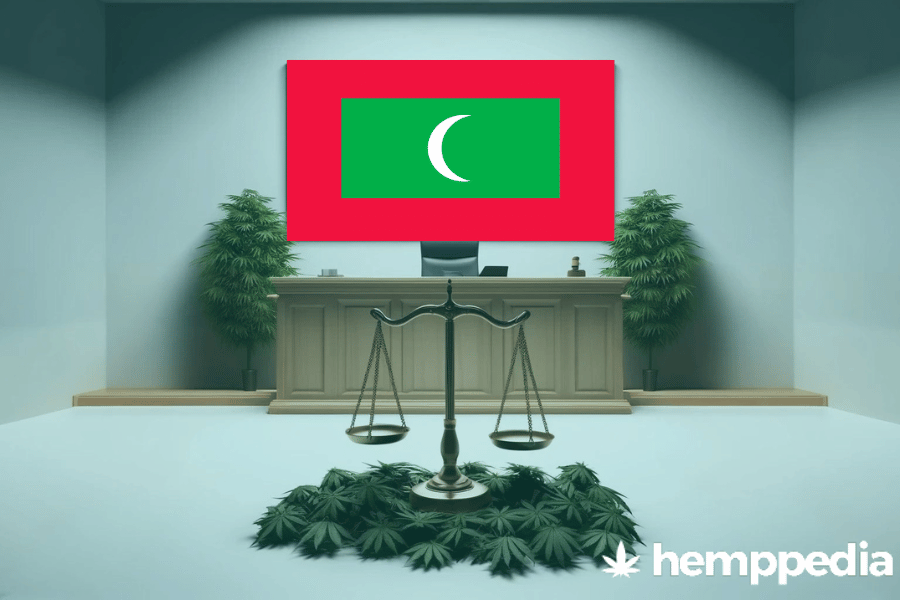TL;DR
As of the time of writing, CBD (derived from cannabis) is considered illegal in the Maldives. Despite an increase in the global trend towards the decriminalization and legalization of cannabis and its derivatives, the stringent narcotics laws of Maldives have held firm. This article provides a comprehensive review of the legal situation of cannabis and CBD in the Maldives.
Key Aspects of Cannabis Legislation in the Maldives:
- Usage: Illegal
- Possession Limits: Not applicable
- Distinction from THC-containing products: No distinction, all cannabis derivatives are prohibited
CBD (Cannabidiol) is a component derived from cannabis plants. While it does not induce the ‘high’ associated with another cannabis derivative (THC), its beneficial properties for health and well-being have led to a global trend of decriminalizing its use. However, the Maldives remains a notable exception to this trend.
Overview of CBD Legislation
Legal Landscape
The Maldives operates under strict anti-narcotics policies. The use, possession, trafficking and sale of any drug substances, including cannabis and its derivatives, are met with heavy penalties.
Regulatory Bodies
The Maldives Drug Control and Enforcement Department is responsible for enforcing the country’s restrictive stance on Cannabis and its derivatives.
Legal Definitions
CBD is considered as a drug substance under Maldivian law, just like THC, regardless of its non-psychoactive properties.
Historical Context
Traditional and cultural usage of cannabis in the Maldives dates back centuries prior to the enactment of strict anti-narcotics laws. Current strict laws and penalties are intended to control drug trafficking and curb substance abuse.
Possession, Use, Cultivation and Sales
Possession, cultivation, and sale of cannabis and its derivatives, including CBD, fall under illegal activities in the Maldives. Additionally, importing or exporting CBD products is considered a serious criminal offense.
Enforcement and Penalties
The illegal possession or trafficking of cannabis and its derivatives can attract heavy fines and long-term imprisonment, irrespective of the THC or CBD content of the compounds. There are no separate regulations for medical or non-medical use, and usage for health or medicinal purposes is not currently recognized in legal terms.
Comparative Analysis
Compared to other countries and regions which have eased restrictions or legalized the use of CBD, such as Canada and certain US states, the Maldives maintains a stern stance, treating CBD the same as other psychoactive substances.
Conclusion
While the global trend leans towards decriminalizing cannabis and acknowledging the potential health benefits of CBD, the Maldives uphold stringent laws against cannabis and its derivatives. Anyone found violating these laws can face severe penalties, including long-term imprisonment. As of now, no significant changes in the legal status of CBD are expected soon.





